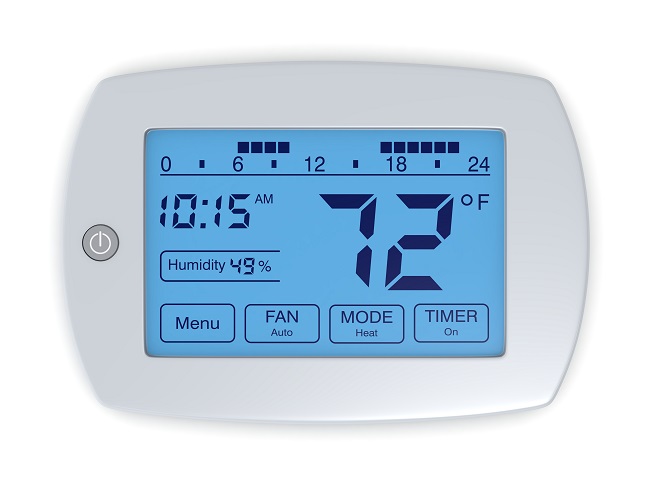Geothermal Heat Pumps: Heat Exchange Between Home and Earth
Heat pumps employ energy efficiency for heating and cooling. The use of geothermal energy makes them nearly completely sustainable. What makes geothermal heat pumps different from conventional heat pumps is that the outside components of geothermal heat pumps are buried in the ground, those of conventional heat pumps are above ground.

The Heat Pump:
The heat pump is counter-intuitive on the surface because it is a device that extracts heat from a cold outside and uses it to heat a warmer home. In the Summer, it takes the heat from a warm home and transforms it to an even warmer outside. Where does the heat from a cold outside come from? How can the heat pump take heat from a cooler home into the warmer outside? Normally, heat flows from warm to cold–cold being the absence of heat.
It’s not really the air you move. It’s a substance called a refrigerant. A refrigerant is a liquid that absorbs heat easily and evaporates quickly. The secret of moving heat from a cold to a warm region is by the use of two principles, evaporation and compression. Geothermal heat pumps have two sections: An outdoor coil is series of looping hoses or pipes buried in the earth near the house. These outdoor coils are filled with a refrigerant composed of an antifreeze mixture. An indoor coil runs through the in-home heat pump components. It is filled with a refrigerant called R-410A. The two coil systems never connect but run closely alongside and around each other enough that heat from one of them is conducted into the other.
Clever Thermodynamic Engineers:
The engineers who developed heat pumps were wizards at using the principles of thermodynamics, Boyle’s Law and Charles’ Law.
- Boyle’s Law states that you increase the pressure on a gas by decreasing the volume.
- Charles’ Law adds temperature into the mix. If you decrease the volume or increase the pressure, the temperature of the gas goes up.
- If you want to increase the temperature of a gas (like the air–or the vapor from a refrigerant) you compress it.
- If you want lower the temperature of the gas you let it expand by evaporation.
To capture the heat from the cooler outside air, the refrigerant from the inside is put under pressure then allowed to expand near the outside coils. The antifreeze from the outside coils is put under pressure from a compressor at the same time. When the two coils meet, the warmer outside coils heat the cooler inside coils and you have a heat exchange. The warmed refrigerant from the inside coils is pumped back into the house to release the heat. In other words, the miracle that makes heat pumps work has to do with manipulating pressure and evaporation. Of course pumps and compressors do require extra energy. That is the price nature makes you pay for violating basic principles of natural heat flow. The question is, can this heat pump work efficiently enough that it would actually conserve energy more than simply heating the air with gas or electricity?
In a heat pump, some of the work of temperature control is actually performed free of charge by the environment. The heat pump only uses electricity for powering pumps and motors not for generating heat. Above ground heat pumps are able to produce more than three units of heat for every unit of power, that’s an efficiency of 300 percent. Geothermal heat pumps that operate below the ground surface where outside temperatures are higher can be more efficient. Electric heaters are rated as 100 percent efficient. Gas or oil heat is significantly less efficient, rated at around 60 percent efficient (but the units of power are a little hard to directly compare).
Heat Pumps Off-Grid?:
Heat pumps are very inexpensive to run in terms of fuel. One conventional heat pump can offset 300 gallons of fuel oil in a typical home. Daily use of a heat pump will increase electric bills by between $50 and $100 monthly, but it will save more than 50 percent over the price of fuel oil or gas and significantly lower your home’s carbon footprint.
Since heat pumps do increase the need for electric energy, most experts feel that they are difficult to manage in an off-grid home. Heat pumps save on fuel consumption but increase electricity consumption to the point that it would be difficult to generate enough energy to run them using solar or wind turbine systems.
Wayne Price Heating And Air Conditioning specializes in providing a superior HVAC service that offers unmatched residential HVAC installation and repair expertise. Please contact us to learn more.
